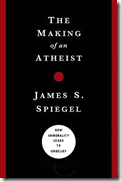- Paperback: 204 pages
- Publisher: IVP Academic (July 2011)
- Amazon
- Christianbook.com
- Google Books Preview
Originally published in the Expository Times, this collection of essays edited by Paul Foster explores the life and thought of twelve pre-Nicene Christians. Many of these thinkers you would expect to see, such as Origen and Irenaeus. However, some of them may surprise you, such as Perpetua.
One of the strengths is that the variety of authors results in a less formulaic presentation from essay to essay. However, this also results in unevenness in the writing. Some of the essays were page-turners, while others were a chore to finish. Fortunately, there are only a few that were in the latter category.
Another nice feature of these articles is the juxtaposition of introduction and scholarly dialogue. Many articles give a clear statement of established facts, but also follow up by advancing scholarly opinions on more recent academic debates or textual analysis. For example, Rick Rogers proposes that Theophilus of Antioch’s To Autolycus is more protreptic than apologetic in nature, and Paul Foster discusses the textual criticism surrounding the work of Tatian.
I was also pleased to see that many of the authors showed a connection between these ancient writers and contemporary thought, such as Denis Minns’s observation from Irenaeus that “written documents do not carry their own tools for interpretation with them” (42). That’s a good word for those who fail to realize that any interpretation (of Scripture or any other communication) relies on an interpretive framework.
I was excited to see the Perpetua included in the list. The introduction states, “Her inclusion among other figures is not due to the attempt to embrace the feminist agenda for its own sake, or to feign some other type of ‘trendiness'” (xv) and acknowledges that she “may not have been the greatest theologian” (xvi). However, Sara Parvis’s essay failed to convince me that Perpetua belonged in this collection of significant thinkers. There was just too much supposition and extraction necessary to make a solid case for Perpetua as a thinker.
All things considered, Early Christian Thinkers is a welcome contribution for those interested in a more scholarly introduction to the lives and legacies of a handful of early Christian theologians who have left their mark on the church and her theology.
– Reviewed by Adam Reece
* Thanks to InterVarsity Press for providing a review copy.





![Reblog this post [with Zemanta]](https://i0.wp.com/img.zemanta.com/reblog_e.png)

